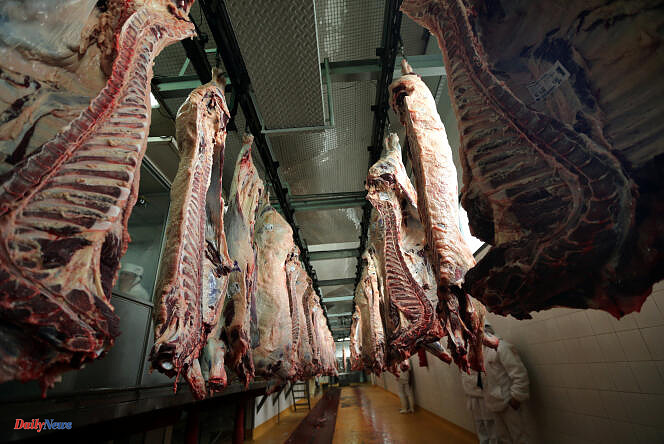The slaughtering companies federated in the Culture Viande union alerted, Tuesday February 20, four days before the Agricultural Show, to the difficulties of the sector, in "overcapacity" due to the drop in livestock and faced with costs high. “Since September, there has been a slaughterhouse which has closed every month and, since the beginning of the year, (…) practically two slaughterhouses which have closed [every month],” declared the director of Culture Viande, Paul Rouche, during a press conference.
Out of 230 slaughterhouses in France, those which have closed are mainly “small and medium-sized slaughterhouses”, stunned by the surge in their production costs (electricity, transport, packaging, etc.), he added.
Culture Viande defends the interests of nearly 300 companies in the slaughtering and cutting and wholesale trade of butcher's meat (excluding poultry). These companies, including the leader Bigard, employ 36,000 employees.
The closures or restructuring will affect “also the largest slaughterhouses”, because “we find ourselves with excess slaughter capacity” due to the drop in French livestock, forcing sites to operate only four days a week, added the president. of the organization, Yves Fantou.
“Without production, there is no more slaughter”
In seven years, the number of cows has fallen by almost a million head to around seven million. And, in 2023 alone, “we lost (…) two million pigs, which is enormous, which represents [the volume processed by] a big, big French slaughterhouse,” said Mr. Fantou, at the head of a Breton company with around sixty employees.
This drop in the number of animals inflates their price: 35% since 2021 for large cattle, 50% for pigs.
Even better paid, cattle breeders consider prices still too low to cover their production costs and the erosion of the herd continues. Producers are demanding the application of Egalim laws intended to prevent them from selling at a loss. Until now, acknowledged Paul Rouche, “Egalim has had no effect on the prices paid to breeders. It is the drop in supply that is causing the increase in animal prices.”
However, assured Yves Fantou, “the slaughterers have understood that without production, there is no more slaughter. So we must have breeders who are well paid and who must be supported.”












